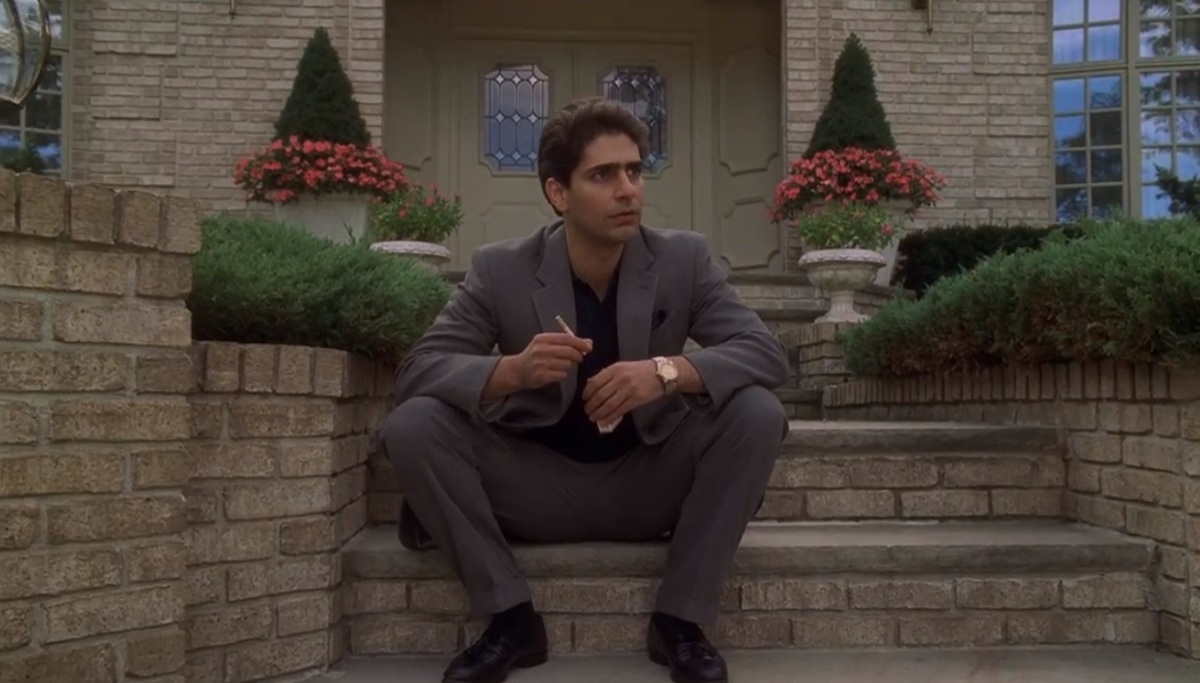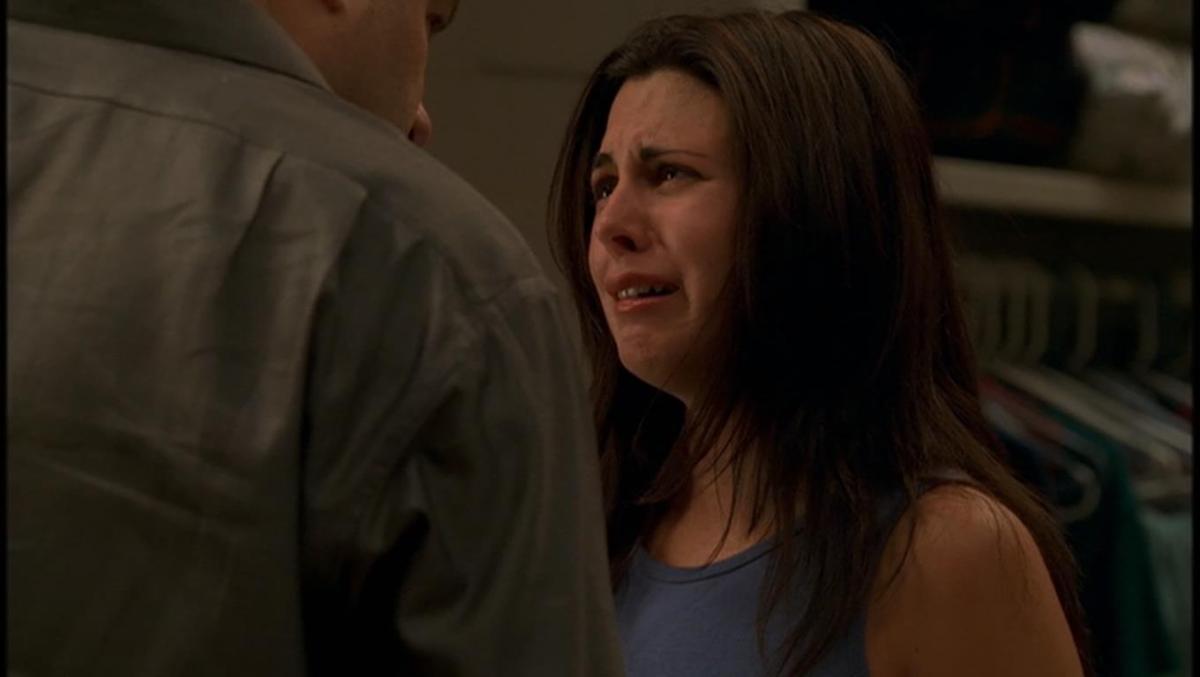
My 10 Favorite Things I Learned in Woke Up This Morning: The Definitive Oral History of The Sopranos
As most Sopranos fans are aware, there’s always something new to learn or observe with every rewatch. But there are certain things you can only learn from an insider’s perspective. That’s where Michael Imperioli and Steve Schirripa come in with their new book. To “get into specifics,” here are 10 interesting things I learned from reading Woke Up This Morning: The Definitive Oral History of The Sopranos by Michael Imperioli and Steve Schirripa and published by William Morrow (HarperCollins Publishers).
(P.S. There was a whole lot of great information. These 10 things just so happen to be NEW to me and not things I’d heard previously in a podcast or read in a book.)
1. The Sopranos cast got thrown out of a funeral home while filming an episode.

First, in “Isabella,” Junior and his crew are at a funeral for an older lady. As Uncle Jun looks at the woman lying in the coffin, he says, “She gave me my first hand job.” It was those words that got the Sopranos cast thrown out of the funeral home! (p. 86) I guess they weren’t quite as offended by Junior’s “A thousand bucks for Honus Wagner, and jack sh*t for Jesus, huh Mikey?” line.
2. Terry Winter created a phony agency to get his foot in the door as a writer.
Next, when writer Terry Winter couldn’t get anyone to agree to be his agent, he decided to take matters into his own hands. By that, I mean he created his own agency so it would look like he had an agent when sending shows unsolicited scripts.
But how exactly did he pull this off? Well, while down at the Writer’s Guild, Terry just so happened to see a law school classmate’s name (Doug) on a list of agents. So he called Doug and asked if Doug could be his agent. When Doug said he didn’t have a clue about what agents actually do, Terry took it from there.
3. David Proval (Richie Aprile) was really upset about being killed off the show.
Apparently, after David Proval got the famous phone call from Chase telling him he was getting whacked, he was not the least bit pleased. (p. 138) I guess all I can say is David Chase was lucky he wasn’t dealing with Richie Aprile. Veal parmigian sengwich, anyone? Or would you prefer to get your mouth washed out with soap?
4. The D-Girl scene where Christopher sits outside for 10 minutes was inspired by Todd Kessler's own experience with David Chase.

Next, in the first episode that Todd Kessler wrote, “D-Girl,” Tony told Christopher to go outside and take the ten minutes to think about whether he was in with Tony, or out without Tony.” Todd Kessler, the writer, created that scene directly from his own experience with David Chase. (p. 263) No, David Chase wasn’t a mob boss, but he did give Terry an ultimatum:
Additionally, in “He is Risen,” Ralph Cifaretto is forced to apologize to Tony after a series of bad moves on his part (bad moves is probably an understatement). David Chase got the idea for this scene from reading a Civil War book and learning that Ulysses S. Grant humiliated Robert E. Lee during his surrender at the end of the war. (p. 236)
6. The heavy focus in season six on death and redemption was in the shadow of John Patterson's death.
Tragically, John Patterson, who had directed 13 episodes of The Sopranos, died of prostate cancer in 2005. David Chase was very close to John, so John’s passing felt like a very spiritual event to Chase. Creating the hospital scenes and coma dreams was a way for David to share some of those existentialist ideas.
7. Not surprisingly, Jamie-Lynn Sigler feels the most powerful scene she ever did was her “Mr. Mob Boss” face-off with Tony in “No Show” (S4, E2)
Further, although it wasn’t a surprise to see that Jamie-Lynn Sigler found this scene with Tony to be her most brilliant performance, I wanted to mention it because I wholeheartedly agree. The more I read about how the cast prepares to shoot these scenes, the more impressed I am with how they channel such raw emotion into their work and make it so relatable for the viewers.
8. Tony Sirico told a young Robert Iler The Sopranos wasn't going to turn into anything.

In fact, when Robert Iler found out he got the part of A.J. Soprano, his family was convinced Robert was going to be famous and that the show was going to be a huge hit. But according to Iler, “When we went and shot the pilot, I said that and Tony Sirico said, ‘No, that’s not how this works. We shoot these pilots all the time. We’re never going to see each other again.'” (p. 29)
I can totally hear Tony Sirico saying that in my head, and talk about ironic!
9. The Origin of the "A don doesn't wear shorts" line.
Apparently, this line originated from James Gandolfini getting a call on his cell from an unknown number. When Gandolfini picked up, an unidentified man said, “Listen, you’re a great actor, we like what you’re doing, but you got to know one thing: a don never wears shorts.” (p. 287)
10. John Cassavedes=Chris McAveedy
Finally, there’s also a section in the book where Michael Imperioli talks about his favorite director, John Cassavedes. This immediately reminded me of “Chris McAveedy, the name Christopher used when introducing himself in his Writing for Actors class (S2, E5, “Big Girls Don’t Cry”).
...Got yourself a [book]
In sum, for those who’ve also read Woke Up This Morning: The Definitive Oral History of The Sopranos, what were some new things you learned that stuck out to you the most?
By the way, if you haven’t gotten your copy, you can find it online or in stores.








